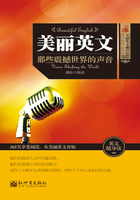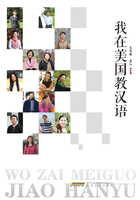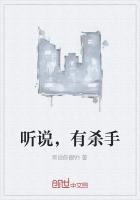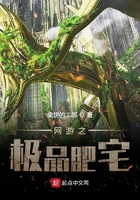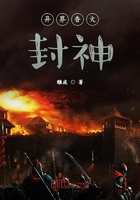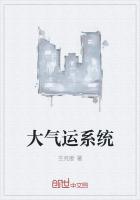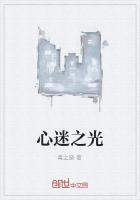Let Life Sublimate in Fragrance of Books and Nature
佚名/Anonymous
Earthworms are found in all parts of the world. They help to build the world. They help to prepare the earth to bring forth the food of man. Do you think that very strange?
Now let us see how this is done. The worms live underground. They make long, winding halls, like streets, some inches below the top soil. The halls or little tunnels help to keep the earth loose, so that the fine roots of the plants can grow well in it.
These tunnels also serve to help the air move more easily through the soil. By their constant motion below the surface the worms till the earth, as rakes, spades, or ploughs till it above.
The chief work of the earthworms is to enrich the soil. When they make their houses, they fill their long bodies with the earth, and carry it to the top of the ground. There they pile it in heaps, called worm-casts. Early in the day or after a rain you can find these worm-casts over all the garden paths.
There are so many worms busy all the time that each year they bring up tons of earth. They make the earth fine and loose by pinching it off with their mouths. Fields once stony and hard have become rich and fine.
世界各地都有蚯蚓,它们有助于建造世界,有助于土地里长出人类所需的粮食。你觉得这种说法奇怪吗?
现在,让我们来看看蚯蚓是怎么做到这些的吧。蚯蚓在地下生存,它们在地下钻来钻去,把泥土钻成一条条蜿蜒绵长的孔道,如同街道一般。那些“长廊”或者“隧道”可以使泥土疏松,从而有利于植物的根部生长。
这些孔道也有助于空气轻易地进入泥土。蚯蚓在泥土里不停地钻来钻去,就如同人们在地面上用耙子、铲或犁松土一样。
蚯蚓首要的工作还是使土壤更加肥沃。当它们建造房子的时候,总是让自己长长的身体里装满泥土,并把它带到地上,堆成小堆,这就是人们所称的蚯蚓粪。每天早上或下雨之后,你都可以在花园的小径上发现蚯蚓粪。
每年都有成千上万的蚯蚓在忙碌着,它们可以挖动数以吨计的泥土。它们用嘴使泥土疏松并使之变得肥沃。那些本来硬如坚石的土壤,?它们钻动之后就变得肥沃而精细了。
书 籍
Books
佚名/Anonymous
Books are a guide in youth and an entertainment for age. They support us under solitude, and keep us from being a burden to ourselves.
——Jeremy Collier
The only true equalizers in the world are books; the only treasure-house open to all comers is a library.
—— Dr. Langford
Perhaps no other thing has such power to lift the poor out of his poverty, the wretched out of his misery, to make the burden-bearer forget his burden, the sick his suffering, the sorrower his grief, the downtrodden his degradation, as books. They are friends to the lonely, companions to the deserted, joy to the joyless, hope to the hopeless, good cheer to the disheartened, a helper to the helpless. They bring light into darkness, and sunshine into shadow.
We may be poor, socially ostracized, shut out from all personal association with the great and the good, and yet be in the best society in the world, in books. We may live in palaces, converse with princes, be familiar with royalty, and associate with the greatest and noblest of all time.
The trend of many a life for good or ill, for success or failure, has been determined by a single book. The books which we read early in life are those which influence us most.
We form many of our opinions from our favorite books. The author whom we prefer is our most potent teacher; we look at the world through his eyes. If we habitually read books that are elevating in tone, pure in style, sound in reasoning, and keen in insight, our minds develop the same characteristics. If, on the contrary, we read weak or vicious books, our minds contract the faults and vices of the books. We cannot escape the influence of what we read any more than we can escape the influence of the air that we breathe.
The best books are those which stir us up most and make us the most determined to do something and be something ourselves. The best books are those which lift us to a higher plane where we breathe a purer atmosphere. As we should associate with people who can inspire us to nobler deeds, so we should only read those books which have an uplifting power, and which stir us to make the most of ourselves and our opportunities.
Emerson had three rules for reading: never read a book that is not a year old; never read any but famous books; never read a book you do not like.
Libraries are no longer a luxury, but a necessity. A home without books and periodicals and newspapers is like a house without windows. Children learn to read by being in the midst of books; they unconsciously absorb knowledge by handling them, no family can now afford to be without good reading. Furnish your house with books rather than unnecessary furniture, or even pictures if you cannot afford all. Wear threadbare clothes and patched shoes if necessary, but do not pinch or economize on books. If you cannot give your children an academic education you can place within their reach a few good books which will lift them above their surroundings, into respectability and honour.
"No entertainment is so cheap as reading ," says Mary Wortley Montagu; "nor any pleasure so lasting." Good books elevate the character, purify the taste, take the attractiveness out of low pleasures, and lift us upon a higher plane of thinking and living. It is not easy to be mean directly after reading a noble and inspiring book. The conversation of a man who reads for improvement or pleasure will be flavored by his reading; but it will not be about his reading.
Whatever you read, read with enthusiasm, with energy, read with the whole mind, if you would increase your mental stature, learn to absorb the mental and the moral life of a book, and assimilate it into your life. He is the best reader who consumes the most knowledge and converts it into character. Mechanical readers remember words, the husks of things, but digest nothing. They cram their brains but starve their minds. If you are getting the most out of a book, you will feel a capacity for doing things which you never felt before.
“书籍是年轻人的向导,老年人的消遣。它帮助我们排解孤寂,摆脱精神负担。”
——杰里米·柯里尔
“世间唯一真正平等待人的是书籍,唯一开放的来者不拒的宝库是图书馆。”
——兰格弗博士
也许世间再也没有什么比书籍的力量更强大的了:它使穷人摆脱贫困,使悲惨者脱离苦海,使负荷者无视沉重,使病人忘却痛苦,使伤心的人抛开忧愁,使受压迫者忘掉屈辱。书籍是孤独者的朋友,被遗弃者的伴侣,无趣者的欢乐,绝望者的希冀,沮丧者的兴奋剂,无助者的帮手。它们给黑暗带来光明,给阴影带来绚烂。
我们可能卑微,被社会遗忘,没有机会与那些大人物和上流人士交往。但是,在书中——这个世界上最美好的社会——我们可以住在宫殿,同王子交谈,熟悉所有王室成员,始终与最伟大、最高尚的人往来。

